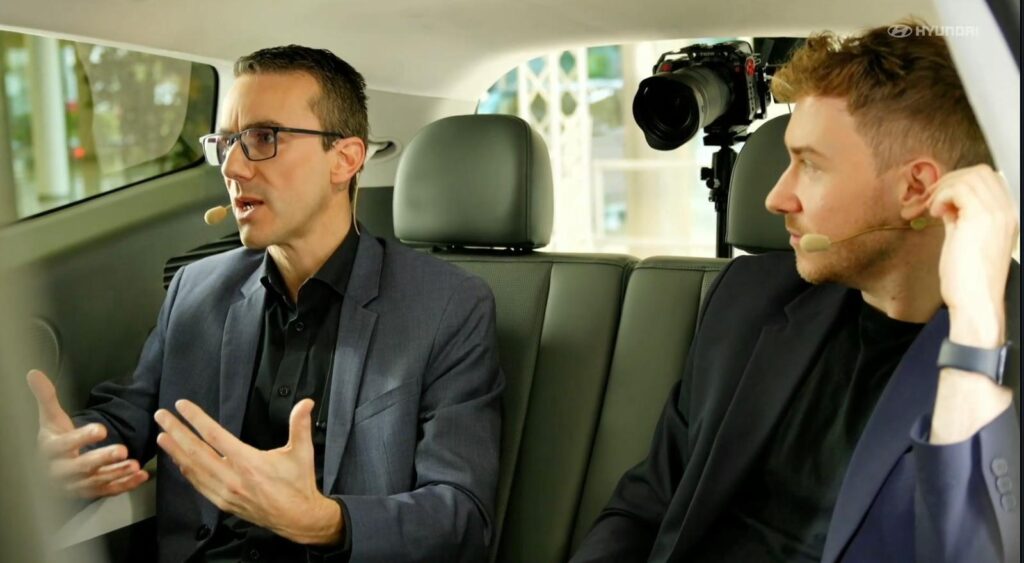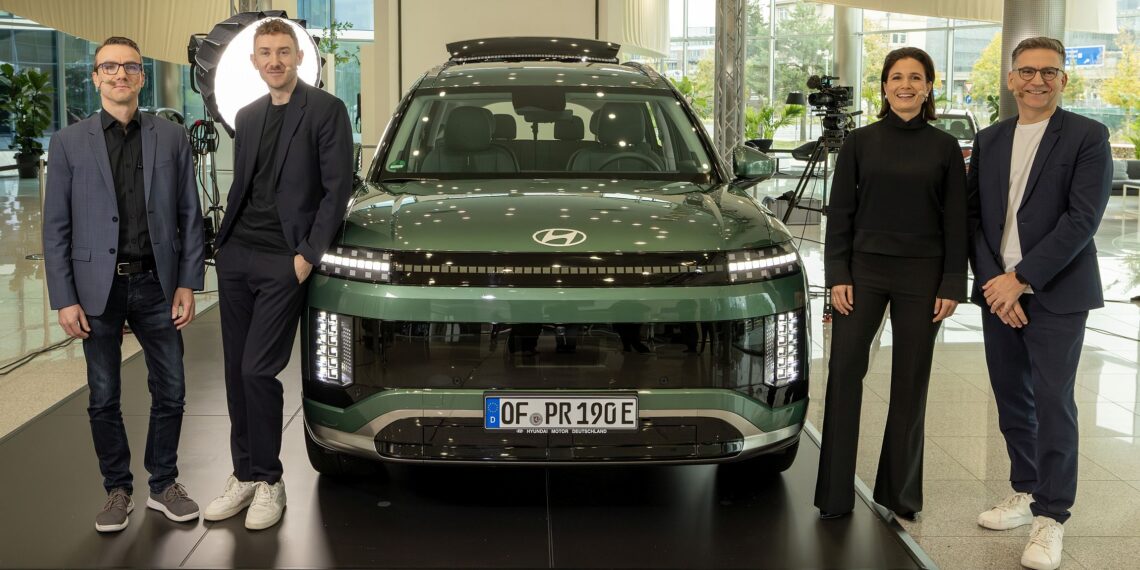The development of artificial intelligence (AI) and the application of technology to mobility were among the topics explored by Hyundai in a debate that featured the participation of the virtual assistant of the Ioniq 9! It is widely agreed that there is potential for a revolution in the way passengers interact with cars and travel in them, aboard the model that is set to debut in the national market in 2026. Artificial intelligence was discussed by several figures, both from the South Korean brand and the technology sector. Notably, the participation of the generative AI that equips this large SUV, the top proposal in the range of 100% electric cars from the Asian brand, was also curious.
The human participants “led” the discussion, primarily Raf van Nuffel, Vice President of Product at Hyundai Motor Europe, accompanied by Tristan Horx, futurist and trend analyst, and Mario Trapp, Executive Director of Fraunhofer IKS. These personalities also demonstrated the modularity of the vehicle, particularly in the rear area of the cabin, which was designed to resemble a “living room.”

Regarding the importance of AI, Raf van Nuff highlighted the way cars are designed and experienced today, approaching the concept of a smartphone on wheels, a description widely used, which even has points of contact with reality, as there are increasingly more similarities in the development of both – for example, the vehicle is permanently connected and features remote updates that allow for further customization. But it remains a car, with many emotional aspects separating it from a smartphone, such as “design or electronic driving aids”.
The Hyundai representative explained that one of the most important points of the technological revolution associated with AI is the concept of making it more accessible and of maximum utility for car passengers. “The first step is what we have now, developing voice recognition, let’s say, in order to turn it into a kind of driving assistant. It is important that it feels very natural – in the past, it was almost necessary to memorize certain commands and get the accent right. As you can hear, the car even learns the way the driver speaks. Then, we will work on applying the technology to autonomous driving, which will happen next year and in the following years. It is also expected to contribute to advancements in charging efficiency and fleet management”.

The trend analyst Tristan Horx explained that the automobile is changing, and that this transformation will be even more pronounced in the future, particularly in terms of utilizing space and time during journeys, as we do not do what the machine “is already doing. Personally, I spend a lot of time on highways, and I feel that I waste a lot of time having to look at the road. A machine can do that, accounting for many redundancies, and it has the advantage of not falling asleep or looking at mobile phones. It would be perfect if I could just communicate with the car and say: ‘find me this’ or ‘I want to do this.’ Autonomous driving will make travel safer for everyone”.
The ethical side of AI also has its impact, with Tristan Horx emphasizing that it is essential not to have a totalitarian view on the subject. “There is a lot of fear that it will be the cause of the destruction of everything, or absolution – because it can potentially fix everything. It is a tool that improves many things, but I would be very cautious with these ‘totalitarian’ views. I focus a lot on generational research, and we can see that younger generations have much more confidence and adaptability to technology, and this can be seen in the context of mobility. The older generation is more skeptical”, he highlighted.
Mario Trapp, a specialist in AI development and its application in security systems, addressed the need to work on the technology to make it increasingly reliable: “If we trust our lives to a self-driving car, a failure can kill us or kill other road users. It makes no sense to ban it; we need it, it is our future. Let’s harness the potential of AI while ensuring that we are not exposed to unacceptable risks”.
In the same vein, Tristan Horx recalled that “the human being is not good at doing the same thing for eight hours. They get tired and distracted, and that is normal. It is easy to see the areas where AI can help us. In the event of an accident, should the technology sacrifice the pedestrian or the driver? Ethical standards will be important due to the need to define the responsibilities of the driver and the machine”.










